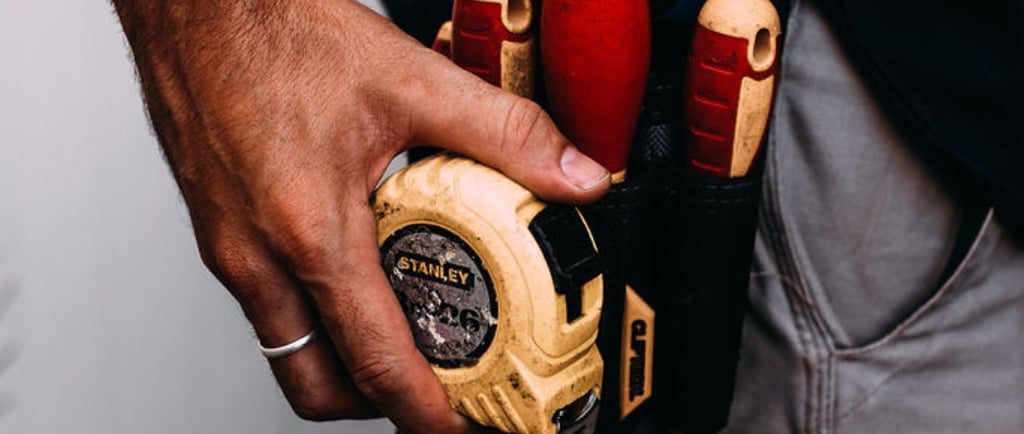Let's Talk Aluminum Wiring: A Home Inspector's Perspective
When it comes to the safety and functionality of your home's electrical system, understanding the type of wiring used is crucial. One type that often raises questions and concerns is aluminum wiring. If you're in the process of buying a home or considering an electrical upgrade, here's what you need to know about aluminum wiring, why it's no longer permitted in new constructions, and why insurance companies might hesitate to insure homes with it.


When it comes to the safety and functionality of your home's electrical system, understanding the type of wiring used is crucial. One type that often raises questions and concerns is aluminum wiring. If you're in the process of buying a home or considering an electrical upgrade, here's what you need to know about aluminum wiring, why it's no longer permitted in new constructions, and why insurance companies might hesitate to insure homes with it.
What is Aluminum Wiring?
Aluminum wiring was widely used in residential electrical systems during the 1960s and 1970s. It was seen as a cost-effective alternative to copper wiring, which became expensive and scarce due to a surge in demand. Aluminum, being more affordable and lighter, seemed like a practical substitute. However, the properties of aluminum and its behavior in electrical systems presented significant challenges over time.
Why Aluminum Wiring is No Longer Permitted
1. Oxidation and Corrosion
Aluminum oxidizes more rapidly than copper. When aluminum wiring is exposed to the air, it forms an oxide layer that can interfere with electrical connections. This oxidation increases the resistance of the wire, leading to overheating and potential fire hazards.
2. Thermal Expansion
Aluminum expands and contracts more than copper when it heats and cools. This thermal expansion can cause aluminum wires to loosen at connections, which can create arcing—a dangerous condition where electricity jumps between gaps in the connections. Arcing can lead to overheating and fires.
3. Dissimilar Metals
Aluminum and copper are often used together in electrical systems. When these two metals come into contact, especially in the presence of moisture, they can cause galvanic corrosion. This corrosion can deteriorate connections, further increasing the risk of overheating and fires.
Why Insurance Companies Might Not Insure Homes with Aluminum Wiring
1. Increased Risk of Fire
Due to the problems associated with oxidation, thermal expansion, and galvanic corrosion, homes with aluminum wiring are at a higher risk of electrical fires. Insurance companies consider this increased risk when assessing the insurability of a property.
2. Higher Maintenance Costs
Homes with aluminum wiring often require regular maintenance and inspection to ensure the wiring is safe. Insurance companies might view these ongoing maintenance needs as a liability, leading to higher premiums or outright refusal to insure the property.
3. Mitigation and Repair Expenses
If an insurance company does agree to insure a home with aluminum wiring, they might require mitigation measures to be implemented. These measures can include installing special connectors or completely rewiring the home with copper. The costs associated with these repairs can be substantial, and insurance companies factor these potential expenses into their policies.
What Homeowners Can Do
If you own a home with aluminum wiring or are considering purchasing one, there are steps you can take to mitigate the risks:
Inspection and Maintenance: Regular inspections by a qualified electrician can help identify and address potential issues before they become serious problems.
Special Connectors: Devices like Copalum connectors or AlumiConn connectors can help improve the safety of aluminum wiring by providing a safer connection between aluminum and copper wires.
Rewiring: Although it can be expensive, completely replacing aluminum wiring with copper is the safest long-term solution.
While aluminum wiring was once a popular choice for residential electrical systems, its inherent risks have led to it being phased out in favor of safer alternatives like copper. Homeowners and buyers should be aware of the potential dangers and additional costs associated with aluminum wiring. By understanding these factors and taking appropriate measures, you can ensure the safety and insurability of your home.
At Just Call Joe Inspections, our certified inspectors are well-versed in identifying and addressing issues related to aluminum wiring. If you're concerned about the wiring in your home, contact us for a comprehensive inspection and expert advice on the best course of action.